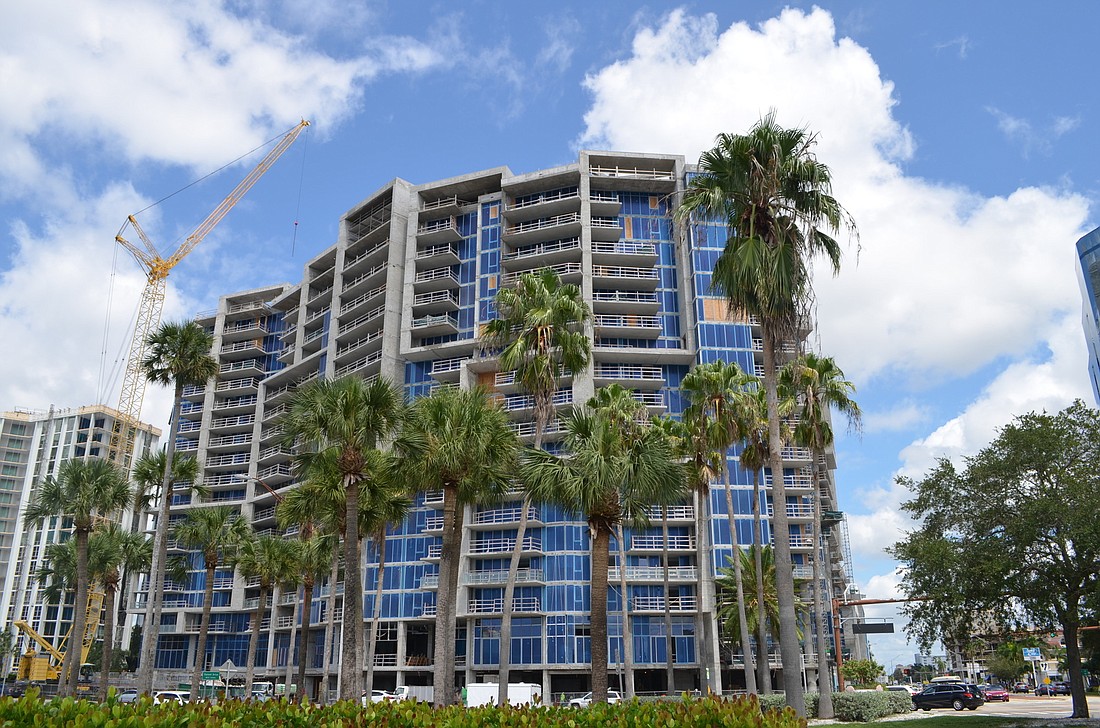- November 12, 2024
-
-
Loading

Loading

It’s budget time in the city of Sarasota. This is the time when city commissioners make the hard decisions about where to allocate the city’s income and how to increase income in the future. This would also be an excellent time to review incentives and fee structures as they pertain to the city’s transportation needs and the development review process.
First, transportation: Sarasota’s one-square-mile downtown is expected to increase its population by at least 75% in the next few years based on the number of residential projects planned for the area. Already congested roads will be worse. If we want to encourage people to leave their cars at home, there are only two main options — walking and public transportation.
Walking in Sarasota can be problematic. The Sarasota-North Port-Bradenton area is among the 10 most dangerous metro areas in the nation for pedestrians — with special notoriety for U.S. 41 from Main Street to the Manatee County line.
On the other hand, public transportation is infrequent, inconsistent and inconvenient. Improving public transportation is costly. But despite the need for funding, multi-modal fees on new development were set at ridiculously low levels as an incentive to development in 2014 when the fees were enacted. These fees were not raised until a few months ago, and the new rates won’t take effect until July.
An alternative potential source of transportation fees — the so-called “proportionate share” fees that could result from the concurrency traffic studies required of larger developments — is so filled with development inducements that it has almost no chance of being productive.
Second, the most controversial development incentive in Sarasota is administrative approval of projects. Administrative approval is an expedited approval process that allows certain projects to be approved by city staff rather than have the decisions made at Planning Board and City Commission public hearings.
In the downtown, ALL substantial projects are eligible for administrative approval as long as they adhere to the strictures of the zoning code. The Vue, Embassy Suites and most of the buildings underway downtown were approved administratively without public hearings of any kind.
The concept of administrative approval came to town in the wake of Andres Duany’s new urbanist plan for downtown Sarasota. That vision rested on the notion that a well-written code based on the principles of New Urbanism, and interpreted by planners trained in that discipline, would greatly reduce public conflict over new development. Several events got in the way of this utopian goal. Most significantly, Mr. Duany’s “Smart Code” was never adopted by the City Commission. Instead, the new downtown code was written by a member of the city’s Planning Department, interpreting Mr. Duany’s vision. The result is an inconsistent and somewhat fractured application of New Urbanism.
The flaws in the zoning code have become glaringly obvious recently as the city is being built-out with tiny sidewalks, loss of green space, massive buildings and blank walls. City staff has no choice but to approve applications that adhere to the code. There is little or no opportunity for the public to weigh in effectively on a project until after it is approved — in which case, there are only 10 days to mount an organized appeal.
There were years when the downtown was desperate for development, and in return the city promised various incentives to developers. Now the downtown is a desirable area in which to invest. If the city wants to continue to offer incentives, there should be identifiable public benefits attached — affordable housing, larger setbacks, green space — all coupled with changes in the zoning code to allow these amenities.
The challenge now is for our elected officials to take a de novo look at any and all incentives — maintaining or increasing the ones that provide a benefit, removing or improving those that do not. The summer budget season is a perfect opportunity.
Everyone would agree that Sarasota is a dynamic city experiencing enormous growth. Our fee structures and development incentives should also be dynamic — monitored regularly and adjusted to reflect current conditions. To do otherwise is to sell the city short.
Eileen Normile is a founding member of STOP!, a member of the city Planning Board and former Sarasota city commissioner.